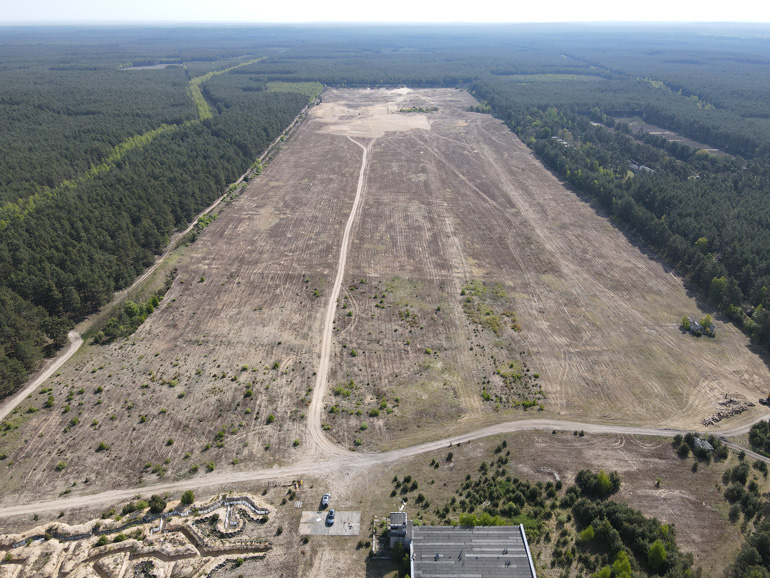-
DeutschDeutschland

-
EnglishWorldwide

-
Canada

-
Ireland

-
South Africa

-
United Kingdom

-
EspañolArgentina

-
Colombia

-
España

-
FrançaisFrance

-
Tunisie

-
Magyar nyelvMagyarország

-
NederlandsNederland

-
PolskiPolska

-
SuomiSuomi


(Wiesbaden/Łódź, 14 August 2025) A major success for ABO Energy in Poland: the project developer has been awarded a contract for its first Polish solar park in the tariff tender issued by the authority URE (Energy Regulatory Office). Before the successful bid, ABO Energy had already received the connection conditions for the Gubin solar park, a challenging and decisive step in project development in Poland.
Construction of the solar park has begun recently. The project has a maximum capacity of 17 megawatt peak and will supply more than 6,000 households with electricity. The solar park is being built on the site of a former military range in Gubin in the Lubuskie voivodeship. “In 2022, we connected our first wind farm in Donaborów to the grid, and now we are building our first solar park in Gubin – an important step for ABO Energy Polska. We are very pleased that, following grid connection approval, we have now also won a tariff,” says Aleksandra Koska, Managing Director of ABO Energy Polska.
ABO Energy has been active in Poland since 2019 and opened an office in Łódź in 2020. The 18 employees work on solar, wind and battery projects with a total capacity over one gigawatt. In addition to grid access for Gubin, ABO Energy recently received grid connections for three additional solar parks. The company has applied for grid connections for three standalone battery projects (including a 257-megawatt battery storage facility).
“The outlook for renewable energies in Poland is very good,” explains Dr Klaus Pötter, the responsible General Manager. “The country is experiencing high economic growth and has an electricity demand of around 160 terawatt hours. Until now, coal has played the leading role, but that is currently changing,” explains Pötter. In June 2025, renewables overtook coal in electricity generation for the first time. The goal is for their share of the electricity mix to rise from the current 29 per cent to 56 per cent by 2030.
The expansion of onshore wind energy in Poland is currently still being slowed down by a 10H distance rule. According to this rule, a wind turbine must be located at a distance ten times its height from the nearest residential development, unless the local community agrees through the Local Development Plan to place the turbines closer, at a minimum distance of 700 m. The legislature is seeking to relax this regulation. “In any case, we are convinced that onshore wind energy will play an important role in Poland again in the future and are therefore continuing to work intensively on several wind projects,” says Koska. “Solar energy and battery storage had a slightly easier time and we hope that realisation of our solar park in Gubin will help us to further expand our strong position in the Polish market. Thanks to the excellent work of our colleagues in Łódź, Warsaw, Wrocław and Kraków and the support of our German parent company with its nearly 30 years of experience, we are very well positioned to help shape the Polish energy transition.”